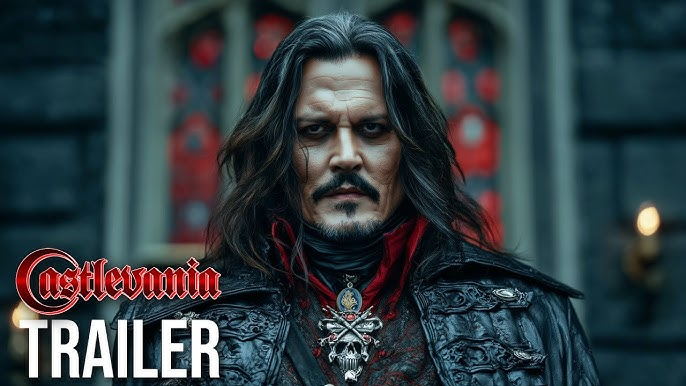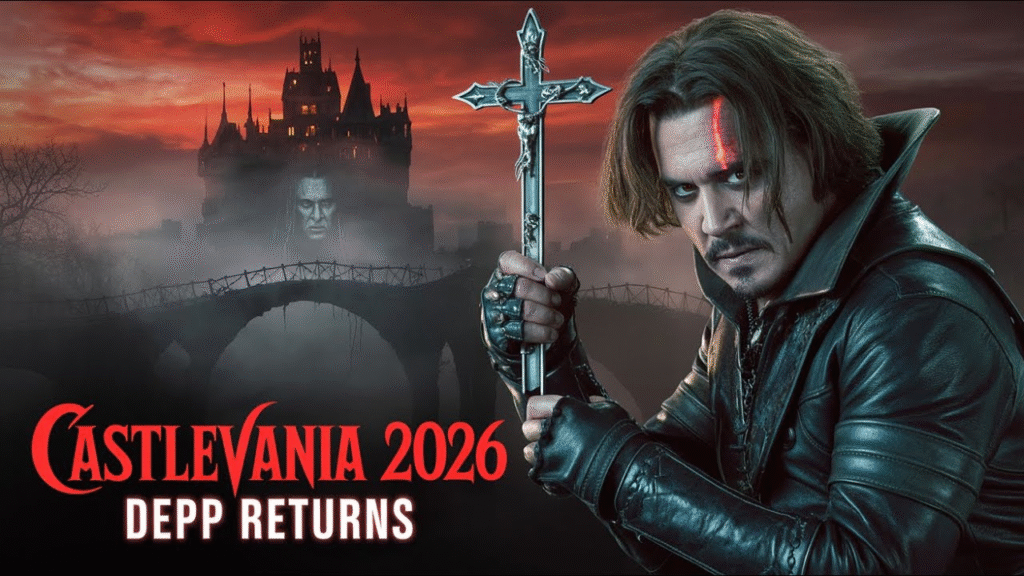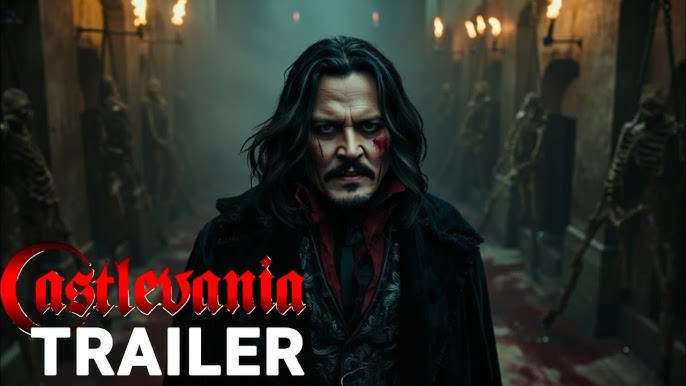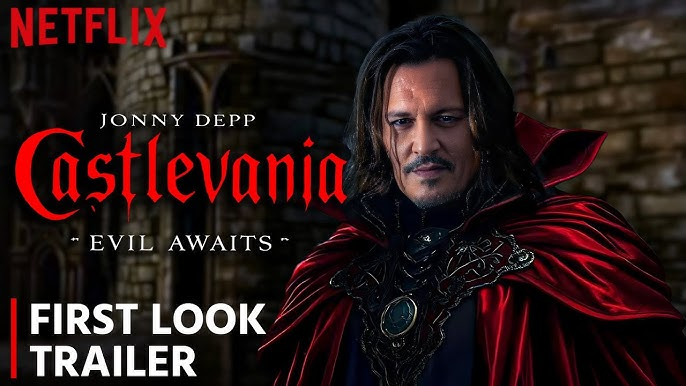A storm is rising over Wallachia. Castlevania (2026), the highly anticipated live-action reimagining of Konami’s iconic video game series, unleashes a gothic epic of stunning scale and emotional intensity. With Johnny Depp delivering a career-defining performance as Vlad Dracula Tepes, this adaptation doesn’t merely retell a legend—it resurrects it in blood and fire.

From its opening moments, director Robert Eggers (The Witch, The Northman) sets a tone of grandeur and dread. The skies are red, the castles weep stone tears, and the line between man and monster blurs with every frame. At the center of it all is Dracula—a vampire king not born from darkness, but driven into it. Depp’s portrayal is equal parts tragic and terrifying, infusing Dracula with regal sorrow, cold fury, and the timeless ache of lost love.
The inciting spark is as poignant as it is horrific: the execution of Lisa, Dracula’s beloved human wife, under accusations of witchcraft. Her death shatters the last tether to his humanity. What follows is not a descent, but a deliberate march into hell—a declaration of war against mankind, whom he deems unworthy of mercy. Depp’s performance leans into operatic anguish, making Dracula less a villain than a wrathful god mourning the world he once tried to understand.

But where there is despair, there is resistance. Enter Trevor Belmont, played by Richard Madden with grizzled charm and barely concealed pain. The last son of a disgraced monster-hunting family, Trevor is not your clean-cut hero. He drinks too much, fights too dirty, and carries his family’s legacy like a chain around his neck. Yet when darkness calls, he answers.
Joining him is Sypha Belnades (Sofia Boutella), a fire-wielding scholar-warrior whose intellect burns as hot as her magic. The chemistry between her and Trevor crackles with wit and tension, offering brief moments of light in an otherwise night-shrouded tale. Rounding out the trio is Alucard, Dracula’s half-human son, played with ethereal elegance by Timothée Chalamet. Torn between love for his father and duty to mankind, Alucard is the soul of the story—a boy at war with his own blood.
Visually, Castlevania (2026) is a gothic feast. Eggers’ signature style turns every frame into a painting: shadow-drenched corridors, moonlit forests, candlelit libraries where spells and secrets collide. The creature design is feral and mythic—succubi with bone wings, vampires that crawl like insects, night creatures stitched from nightmare.

The action, choreographed with brutal beauty, doesn’t pull punches. Whip clashes against fang, flame meets claw, and every battle carries emotional weight. When blood is spilled, it means something—sometimes grief, sometimes justice, and sometimes the cost of trying to hold back the tide.
But this adaptation’s greatest strength is its soul. Castlevania (2026) is a tragedy before it’s a spectacle. It asks hard questions about vengeance, forgiveness, and whether monsters are made or born. Dracula, in all his grandeur, becomes a mirror—reflecting back the hatred and cruelty of the human world. The heroes are not flawless saviors, but fractured survivors trying to hold the light.
The first trailer teases iconic moments: the burning of Lisa, Trevor’s first whip crack, Alucard’s awakening, and the silhouette of Dracula atop his fortress, wings unfurled, eyes like dying stars. The score, composed by Bear McCreary, mixes choral lament with symphonic thunder, echoing the weight of a world on the brink.

If the trailer is any indication, Castlevania (2026) is poised to be more than an adaptation—it may become the definitive version of the tale. A sweeping tragedy with the teeth of a horror epic, it honors its source while carving its own mark into the night.